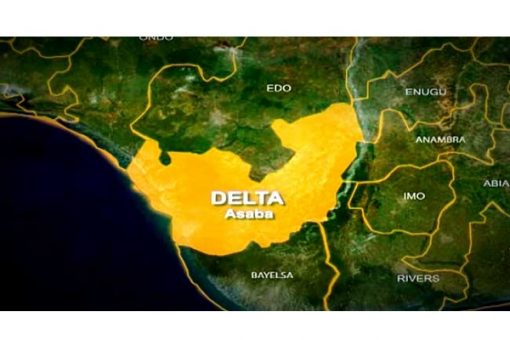The Itsekiri ethnic group has called on the Federal Government to intervene in what it describes as an ongoing and coordinated encroachment on its ancestral lands and waterways by neighboring Urhobo and Ijaw communities in Warri, Delta State.
At a press briefing in Lagos, Chief Rita Lori-Ogbebor, the Igba of Warri, urged the authorities to uphold existing legal rulings and historical agreements in order to prevent further escalation of tension in the Niger Delta region.
“We are not calling for war. We want justice and protection,” she said, warning that failure to act could destabilize a fragile peace already strained by ethnic and territorial rivalries.
According to Chief Lori-Ogbebor, land initially granted to Urhobo families decades ago—under specific tenancy terms—has been unlawfully expanded beyond its agreed boundaries. The Itsekiri leader referenced court rulings which, she said, affirmed the symbolic one-pound annual rent and two-plot limit imposed on tenant families such as the Eyiekpimi and Olodi, conditions she claims are now being flouted.
“In defiance of these rulings, some now act as if they own Warri. These actions not only disregard legal decisions but also threaten the peace we have tried to maintain,” she added.

Chief Lori-Ogbebor also raised concerns over alleged encroachment on Itsekiri waterways, claiming a former militant leader is acquiring large coastal territories with state-backed influence and security apparatus.
She said such actions amount to an unofficial transfer of control over critical land and marine resources, leaving the Itsekiri exposed and voiceless in their homeland.
“Our people, whose livelihoods depend on fishing and waterway trade, are being squeezed out from both land and sea,” she said.
Referencing the 1957 Willink Commission Report—which advocated protection for minority groups—Lori-Ogbebor emphasized the historic recognition of the Itsekiri as a distinct and sovereign community even before Nigeria’s amalgamation.
She called for the enforcement of Supreme Court judgments, respect for traditional land-owning families like the Odion/Ogisi, and the restoration of balance in government security partnerships that have disproportionately empowered rival groups.
“In the name of fighting oil theft, the government has turned our oppressors into a militarized force while abandoning us,” she warned.
The Itsekiri community is now seeking government assurance that their territorial rights will be respected, and longstanding agreements upheld.
“The Itsekiri people deserve peace, respect, and territorial integrity. We have done our part. Now we call on the Nigerian government—and the world—to do theirs,” she said.
The appeal comes amid renewed scrutiny of land ownership and control in the Niger Delta, where natural resources, ancestral claims, and political power remain deeply intertwined.



